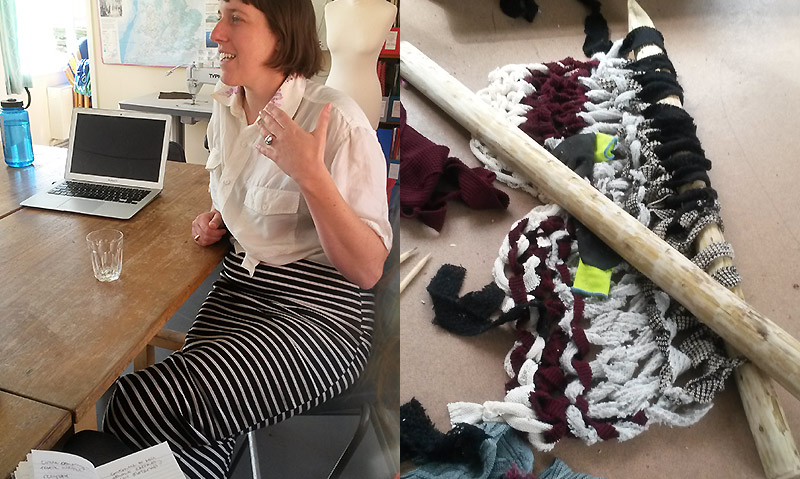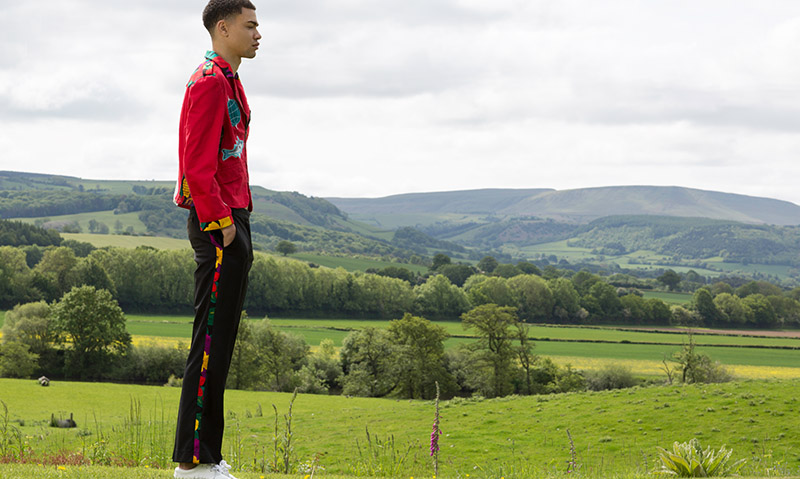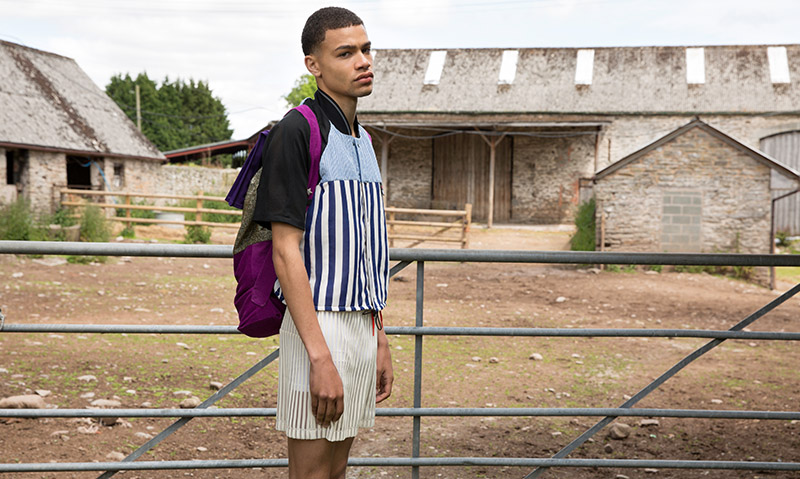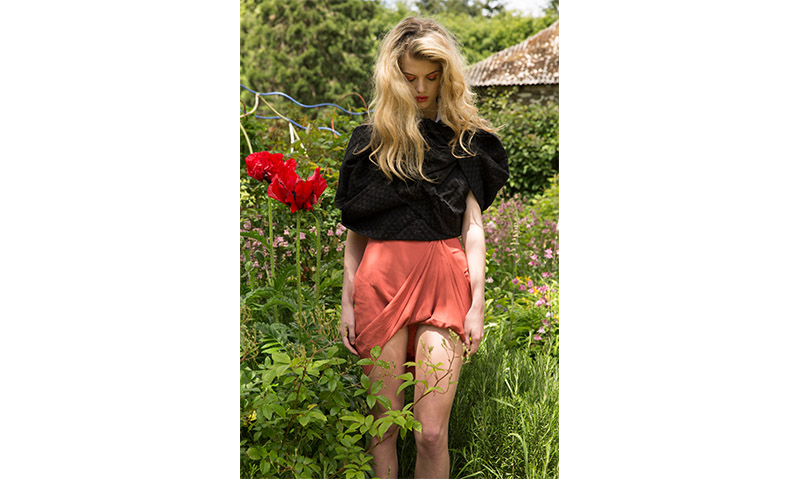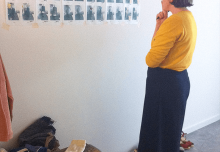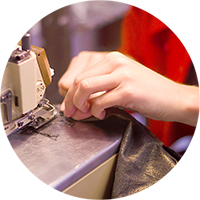
Recently, I was thrilled to work on the Just Fashion lab with H&M, Environmental Justice Foundation and Centre for Sustainable Fashion at the Hay Festival 2015.
One week was spent bringing together 6 students from across the UK to work with sustainable fashion researchers, designers and pattern cutters to explore what the opportunities within sustainability involve and – rather than looking at what has been done before -, explore what current global issues affect our design process and what is happening in the industry that enables young designers to put these considerations at the forefront of their practice.
We used textiles from the H&M in store collection boxes to design a complete look – to be professionally photographed and then showcased at a glossy event at Hay Festival featuring a panel discussing with Catarina Midby from H&M, Orsola de Castro, Jessica Bumpus, Vogue and Margareta van den Bosch, chaired by CSF’s Dilys Williams.
Early in the process, while the students were exploring their fabrics and concepts, our very own Lizzie Harrison ran a session with the students addressing circular economy, supply chains and material sourcing amongst many other things. From this point the students were able to place their design strategies in a global context and take into account the full supply chain as well as post purchase responsibility.
Tearing the students away from this discussion was no mean feat but there was sewing to be done – as well as knitting using deconstructed jumpers and fence posts (yes, fence posts!) whittled into knitting needles by the accommodating groundsman!
Material-led designing and working to minimize waste through pattern cutting were new ways of working for most of the designers. To complete the garments from conception to cutting, sewing, finishing and shooting in one week means putting the hours in and being very resilient! Our students did a fantastic job an as you can see below, the photoshoot on a sunny Saturday morning showcased the work beautifully:
Abigail Garbett uses luxury fabrics and innovative pattern cutting with beautifully combined fabrics to create seasonless womenswear with a focus on endurance.
www.abigailgarbett.co.uk
Ffian Jones works around gender expectations and ramps up the colour content of menswear using extravagant florals and warped silhouettes.
Adele Hansborough uses beautiful juxtapositions of inner and outerwear fabrics with a sportswear edge to her interchangeably styled, proportion led womenswear.
adelehansborough.wordpress.com
Alisa Vaseghi puts the textile at the forefront, starting by deconstructing knitwear to be knitted into a length of knit and then draped into a striking fashion look. Zaki Musa makes incredible sports influenced menswear using womenswear fabric in a clever combining of weights and textures. Accessories also feature strongly in the very wearable designs.
www.zaki-musa.com
Lian Adele Davies keeps it clean and simple with stunning reworkings of the abundance of cotton and polyester shirting that is discarded thanks to a worn cuff.
Amber Brown using found materials Amber responds to the needs of victims of natural disasters imagining the nomadic requirements of a community left without homes.
cargocollective.com/amberbrown
Our students have had the unique experience of a full week immersed in consideration, questioning and developing ideas around more sustainable ways of creating fashion. Each participant brought with them a different level of engagement with sustainable thinking. The lab gave them the opportunity to explore their preconceptions and question and test their own practice while learning about global implications as well as local solutions.
The reaction from the students since the lab, has been overwhelmingly positive. Some students are going back to begin their third year of study and encourage their peers to include extra considerations in their projects, some are graduating and take a vision of intelligent design and production with them into future jobs. They all have new friends, an expanded network and knowledge of what they are not prepared to accept within the industry.


